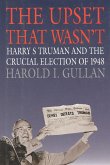Since the advent of the New Deal, unbalanced budgets have become an almost permanent feature of American government - enlightened economic policy to some, a scourge to others. In Deficit Government, Iwan Morgan makes understandable the main trends of budget policy from the Roosevelt to the Clinton presidencies, and surveys the political and partisan debates surrounding the budget during those years. Focusing on federal expenditure and tax policies, Mr. Morgan explains why budget deficits have become the norm in modern American history, what impact they have had on the economy, and why the size of the deficit has grown so vast in recent years. He evaluates the budget as an instrument of economic management: FDR's hesitant acceptance of new Keynesian doctrines; efforts by Truman and Eisenhower to reconcile traditional budget-balancing with the modern concerns of budget policy; the use of deficits by Democratic administrations to boost economic growth in the 1960s; the effects of stagflation on fiscal policy in the 1970s; and the emergence of conservative doctrines that culminated in the supply-side approaches of the Reagan era. Deficit Government also examines those federal programs that over time have been the main beneficiaries of the public purse, focusing particularly on the competing demands of national security, social welfare, and public investment. Mr. Morgan shows how the tax burden has evolved and considers whether principles of progressivity and equity have been maintained. He concludes by noting efforts made in the 1990s to control an alarmingly expanding budget and looks at prospects for deficit control as the century draws to a close. In all, readers who find their eyesglazing over at the thought of reading about budget policy will find Mr. Morgan's refreshing clarity a revelation.
Hinweis: Dieser Artikel kann nur an eine deutsche Lieferadresse ausgeliefert werden.
Hinweis: Dieser Artikel kann nur an eine deutsche Lieferadresse ausgeliefert werden.








